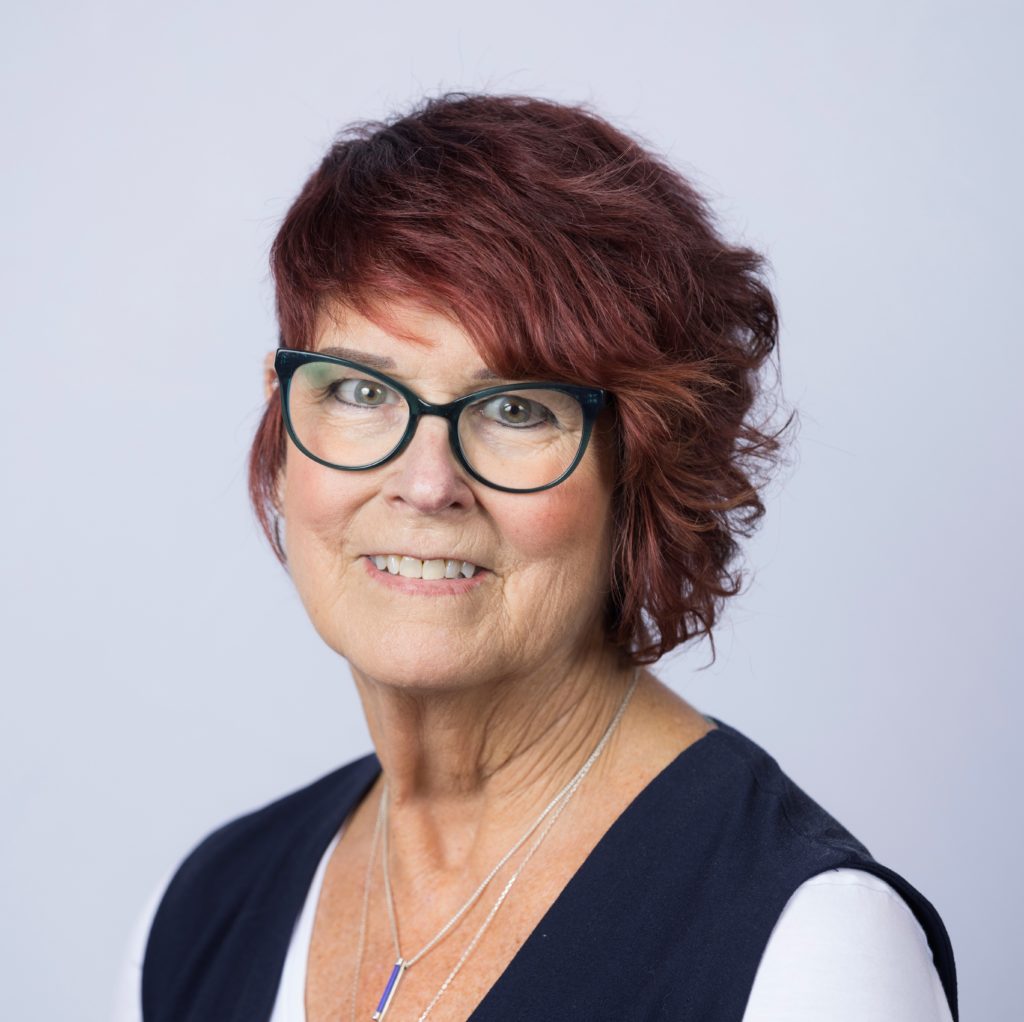Robin Jones named accessibility advisor for the 2024 Democratic National Convention
Text

For her latest assignment, Robin Jones will need all her 40-plus years of knowledge and experience in disability policy, accessibility and compliance with the Americans with Disability Act.
Jones, director of the Great Lakes ADA Center in the Department of Disability and Human Development, has taken on her biggest challenge yet: making the 2024 Democratic National Convention the most accessible political convention in history.
“I’m pleased to have Robin Jones joining the team for this year’s Democratic National Convention,” said Illinois Sen. Tammy Duckworth in a press release announcing the appointment. “We hope to set the gold standard of what accessibility can be for large-scale events as well—and, under Robin’s leadership, I’m confident we can achieve this goal.”
The convention, scheduled for Aug. 19-24 in Chicago at McCormick Place and the United Center, will bring an estimated 50,000 people to Chicago: about 5,500 delegates and alternates, an estimated 20,000 members of the media, plus friends, donors, volunteers and visitors.
Jones, who started the job in February, won’t know how many will require accommodations, or what kind of accommodations, for several months yet. Her preliminary estimate is about 750, but as accessibility adviser, her job is to anticipate every eventuality.
“Accessibility touches basically everything that leads up to, and happens at, the convention,” she said.
Representatives of the Democratic National Convention Committee reached out to Jones about the position. There was no handbook, checklists or timelines to guide her; after the dust settles, she plans to create documentation for future conventions.
“It’s a growth opportunity for me to apply what I’ve been doing for many years to a different kind of experience. The enormity and complexity taps into everything that I do and have done,” she said.
Quote
I hope to set a standard for what a large-scale event like this can look like when it’s accessible for everyone.
Text

Right now Jones is a one-person shop, although she plans to add two interns plus help from volunteers. She works closely with the convention teams assigned to logistics, production, communications and security, as well as the Mayor’s Office for Persons with Disabilities. Discussions are underway with outside contractors, including organizations like Access Living and the Chicago Hearing Society, about providing training and services.
Transportation will be one of the biggest issues, she said.
The convention will provide repair service and loaners for damaged wheelchairs and other mobility equipment.
Unlike at previous conventions, all shuttle buses between the delegates’ hotels and convention sites will be accessible, “so that a person with disability can get on the same bus as everybody else and they don’t have to wait while several buses go by,” Jones said.
The 44 hotels where delegates, press, politicians and allies of the convention will stay must be accessible, as well as the nearby restaurants where they’ll dine.
Disability awareness training for the people providing services related to the convention is another important issue, Jones said. This includes staff at airports, hotels and businesses, even law enforcement.
“We are working with the Secret Service, Chicago Police Department and the DNC’s security team to ensure that they are appropriately trained to work with people with disabilities, that accessibility is not limited by whatever security is put in place, and that they appropriately respond to people who have disabilities who are exercising their First Amendment rights,” she said.
Then there are arrangements for the physical environment in the convention center.
“In past conventions, there wasn’t enough accessible seating. At this convention, every person will be able to sit with their delegation,” Jones said.
The convention floor is where the action is, and at the United Center the only way down is by a single elevator, she explained.
“So we are building a ramp to the floor, which was a huge issue because space is at a premium,” Jones said.
In conversations with delegates, she is learning about other possible needs at the convention: beds for resting, ice packs, refrigeration for medication, quiet rooms.
“We’ll ask people to identify what they need, but we’ll also be proactive about having some things already in place.”
Another issue: creating accessible content through sign language interpreters, real time captioning and audio description, and determining the most effective ways to deliver it.
By August, Jones expects her life will be 18-hour days of troubleshooting and triage.
“In my job with the ADA center, I have interfaced with people in the White House, with senators and representatives and city officials, but not in the same context as in this role,” she said.
Jones hopes the convention’s emphasis on accessibility will benefit Chicago residents and visitors long after it is over.
“If we can put accessibility front and center to make infrastructure changes so that the 50,000-plus visitors coming for the convention have a positive experience, we will also have a legacy for the people with disability who live here.